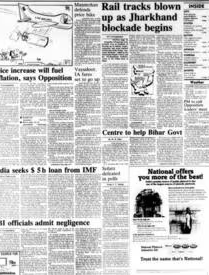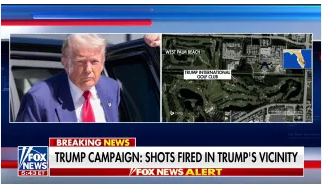Ryan Wesley Routh, accused of attempting to assassinate Donald Trump, was previously featured in a controversial YouTube video by streamer JiDion, promoting radical revolution.
September 16, 2024 — Florida: In a chilling twist, Ryan Wesley Routh, identified as the man behind the second assassination attempt on Donald Trump, was discovered to have appeared in an old video by YouTube sensation JiDion. The video, now resurfacing and going viral, shows Routh advocating for radical change and recruiting “revolutionaries” to overthrow the system.
Routh, who was arrested on September 15 after aiming an AK-47 at Trump during a golf outing in West Palm Beach, Florida, has sparked widespread concern. This alarming footage from JiDion’s video adds fuel to the growing discourse surrounding Routh’s extremist ideologies.
JiDion Video Featuring Trump’s Would-Be Assassin Resurfaces
The resurfaced video, originally posted years ago, captures an intense interaction between JiDion and Routh on a public street. In the clip, Routh, wearing a long black jacket and holding a stack of flyers, passionately speaks about supporting Ukraine’s right to defend itself. When JiDion dismisses the flyers, Routh retorts, “I don’t care if you do paper or not. I’m looking for revolutionaries. I’m looking for people who want to take this whole system down.”
JiDion later confirmed the man in the video was indeed Routh, saying, “Damn, that’s crazy. Yes, that’s him.”
Assassination Attempt Shocks the Nation
On the day of the incident, Routh allegedly positioned himself near a chain-link fence at Trump International Golf Club, wielding a scoped AK-47. Authorities say he managed to get within 500 yards of the former president, who narrowly avoided being shot. Secret Service agents quickly spotted Routh and engaged him, but he escaped, only to be captured hours later on I-95.
Palm Beach County Sheriff Ric Bradshaw acknowledged the severity of the situation: “With a rifle and scope like that, it’s not a long distance.”
Ryan Wesley Routh’s Radical Views
Routh’s disturbing rhetoric in the JiDion video highlights his deep-seated radical beliefs. He dismisses the environment and civil discourse, saying, “We don’t want people who are not serious,” indicating his desire for violent upheaval. His earlier interview with Newsweek also revealed his emotional plea for support of Ukraine, where he begged others to “join the fight.”
Routh’s background, as detailed in his LinkedIn profile, suggests a history of involvement in creative projects and mechanical work. Originally from Hawaii, he owns a shed-building business called Camp Box Honolulu. However, his increasingly public alignment with left-wing causes has raised concerns about his mental stability and the extent of his radicalization.
Netizens React: ‘They Should Have Seen This Coming’
Following Routh’s arrest, social media erupted with reactions to the resurfaced video. One user commented, “I mean, I guess they could have seen this coming.” Another wrote, “Maybe this is what will finally bring back insane asylums.” The viral clip has led to widespread debate about the intersection of mental illness and extremist ideologies.
As Trump narrowly survives a second assassination attempt, questions continue to mount about how individuals like Routh slip through the cracks. This event has raised alarms nationwide, underscoring the increasing dangers posed by violent extremists.

1. Background on Ryan Wesley Routh:
- Who is Ryan Wesley Routh?
Expand on his background and life before the assassination attempt. Details could include his upbringing in Hawaii, his work at Camp Box Honolulu, his political affiliations, social media presence, and any notable events in his personal life that may have contributed to his radicalization. - History of Extremist Behavior:
Provide more information on Routh’s previous activities or statements that may indicate a history of extremist ideologies. This can include political rallies, online forums, or any associations with radical groups. Was he on the radar of any law enforcement agencies before this? - Mental Health Concerns:
Explore potential mental health issues, which seem to be a recurring topic in social media discussions about him. Include comments or interviews from those who knew him, if available, or professionals who can provide insight into how mental illness could be a contributing factor in cases like this. - 2. Trump’s Security Threats:
- Previous Assassination Attempts Against Trump:
Routh’s attempt was Trump’s second assassination scare this year. Expand on this, detailing the first incident and how it may have influenced his security protocols. Provide insight into how Secret Service responds to such threats and how Trump’s security team has evolved over the years. - Trump’s Response:
Include a detailed section about Donald Trump’s reaction to the event. How has he addressed his supporters? Has this incident impacted his campaign or public appearances moving forward? Include any official statements from his team. - 3. JiDion’s Reaction and Online Community Response:
- JiDion’s Full Statement:
Rather than just confirming Routh’s appearance in the video, you could provide a more in-depth look at JiDion’s response. Does he have additional insights into Routh’s personality or political leanings? Has he addressed the resurfacing video more fully in recent posts or videos? - Social Media Frenzy:
Highlight the viral reaction to this incident on platforms like X (formerly Twitter), Reddit, YouTube, and other social media spaces. This could include major influencer commentary, trending hashtags, and screenshots of user reactions. - 4. Political Ramifications:
- Impact on 2024 Elections:
Analyze how this assassination attempt and the subsequent media coverage might affect Trump’s ongoing campaign for the 2024 elections. Is it increasing sympathy and support for Trump, or does it raise concerns about political violence in the current climate. - Polarizing Political Climate:
Discuss the current state of political extremism in the United States, touching on both left-wing and right-wing radical groups. Include data about rising political violence and extremist movements and how events like this shape public discourse and policy. - 5. Broader Discussion of Radicalization:
- Online Radicalization and Social Media’s Role:
Investigate how platforms like YouTube, X (formerly Twitter), and other social media spaces may foster radical ideologies. Were there warning signs of Routh’s behavior online? Discuss how online communities can sometimes escalate individuals’ radicalization. - Left-Wing vs. Right-Wing Extremism:
Provide a balanced overview of political extremism in the U.S., comparing left-wing extremism, which Routh appears to align with, to the more commonly discussed right-wing extremism. Reference known groups and their ideologies, and explore how each side views revolutionary actions. - 6. Legal Proceedings and Aftermath:
- Legal Charges Against Routh:
Detail the legal repercussions Routh now faces following his assassination attempt. What charges have been filed against him? How are federal and local authorities handling the case? Provide insight into the court proceedings and Routh’s defense, if available.
- Historical Context of Political Assassination Attempts:
Compare this attempt on Trump’s life to other historical assassination attempts in American history, whether successful or not. Provide background on famous cases like those against Abraham Lincoln, John F. Kennedy, and Ronald Reagan, drawing parallels or differences with the Routh case. - 1Statistics on Political Violence:
- Use FBI or Homeland Security reports to include up-to-date statistics on political violence and assassination attempts in the U.S.
- Social Media Influence:
- Data from studies or articles about how social media accelerates the spread of extremist ideas and influences behavior. Tie this into how Ryan Wesley Routh may have been radicalized or found a platform for his revolutionary beliefs.
- Security Protocols for Public Figures:
- Insights into how the Secret Service protects public figures like Trump and how they handle assassination attempts. Include quotes from former Secret Service agents or security experts.
- Impact of Political Rhetoric:
- Discuss how inflammatory political rhetoric may contribute to the rise in political violence. What role do public figures, media outlets, and social influencers play in fueling extremist behaviors?





